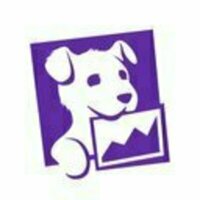Need advice about which tool to choose?Ask the StackShare community!
Prometheus vs TimescaleDB: What are the differences?
Key Differences between Prometheus and TimescaleDB
Prometheus and TimescaleDB are two popular databases used for different purposes. Here are the key differences between them:
Data Model: Prometheus follows a time-series data model, which is suitable for monitoring and recording time-series data such as metrics and events. On the other hand, TimescaleDB is an extension to PostgreSQL and follows a relational data model, offering more advanced features for handling structured and relational data.
Scalability: Prometheus is designed to be highly scalable vertically, meaning it can handle a large volume of metrics from many different sources. It achieves this through its efficient storage engine and query language. On the other hand, TimescaleDB leverages PostgreSQL's scalability and can scale both vertically and horizontally, handling vast amounts of structured data.
Purpose: Prometheus is primarily used for monitoring and alerting purposes in a cloud-native environment. It collects and analyzes metrics from various systems and applications. On the other hand, TimescaleDB is designed for handling large amounts of time-series and relational data in applications that require complex queries and analytics.
Query Language: Prometheus uses PromQL (Prometheus Query Language), which is specifically tailored for querying time-series data. It provides a flexible and expressive query syntax specialized in analyzing and aggregating time-series metrics. In contrast, TimescaleDB uses SQL, which is a widely adopted query language for relational databases. This allows for more complex queries involving joins, aggregations, and other relational operations.
Data Retention: Prometheus has built-in data retention capabilities, allowing users to define the retention period for their metrics. It automatically prunes older data based on the defined retention policy. In contrast, TimescaleDB does not have explicit data retention capabilities. Users are responsible for managing data retention through various mechanisms like partitioning or archiving.
Ecosystem Integration: Prometheus has a vibrant ecosystem with various integrations for data collection, visualization, and alerting. It can seamlessly integrate with other cloud-native tools like Grafana, Alertmanager, and exporters. TimescaleDB, being an extension of PostgreSQL, leverages its extensive ecosystem and compatible tools for data ingestion, analytics, and visualization.
In Summary, Prometheus and TimescaleDB differ in their data models, scalability, purpose, query languages, data retention capabilities, and ecosystem integration. While Prometheus focuses on time-series data for monitoring, TimescaleDB offers a robust solution for handling both time-series and relational data with advanced querying capabilities.
Looking for a tool which can be used for mainly dashboard purposes, but here are the main requirements:
- Must be able to get custom data from AS400,
- Able to display automation test results,
- System monitoring / Nginx API,
- Able to get data from 3rd parties DB.
Grafana is almost solving all the problems, except AS400 and no database to get automation test results.
You can look out for Prometheus Instrumentation (https://prometheus.io/docs/practices/instrumentation/) Client Library available in various languages https://prometheus.io/docs/instrumenting/clientlibs/ to create the custom metric you need for AS4000 and then Grafana can query the newly instrumented metric to show on the dashboard.
Hi, We have a situation, where we are using Prometheus to get system metrics from PCF (Pivotal Cloud Foundry) platform. We send that as time-series data to Cortex via a Prometheus server and built a dashboard using Grafana. There is another pipeline where we need to read metrics from a Linux server using Metricbeat, CPU, memory, and Disk. That will be sent to Elasticsearch and Grafana will pull and show the data in a dashboard.
Is it OK to use Metricbeat for Linux server or can we use Prometheus?
What is the difference in system metrics sent by Metricbeat and Prometheus node exporters?
Regards, Sunil.
If you're already using Prometheus for your system metrics, then it seems like standing up Elasticsearch just for Linux host monitoring is excessive. The node_exporter is probably sufficient if you'e looking for standard system metrics.
Another thing to consider is that Metricbeat / ELK use a push model for metrics delivery, whereas Prometheus pulls metrics from each node it is monitoring. Depending on how you manage your network security, opting for one solution over two may make things simpler.
Hi Sunil! Unfortunately, I don´t have much experience with Metricbeat so I can´t advise on the diffs with Prometheus...for Linux server, I encourage you to use Prometheus node exporter and for PCF, I would recommend using the instana tile (https://www.instana.com/supported-technologies/pivotal-cloud-foundry/). Let me know if you have further questions! Regards Jose
We are building an IOT service with heavy write throughput and fewer reads (we need downsampling records). We prefer to have good reliability when comes to data and prefer to have data retention based on policies.
So, we are looking for what is the best underlying DB for ingesting a lot of data and do queries easily
We had a similar challenge. We started with DynamoDB, Timescale, and even InfluxDB and Mongo - to eventually settle with PostgreSQL. Assuming the inbound data pipeline in queued (for example, Kinesis/Kafka -> S3 -> and some Lambda functions), PostgreSQL gave us a We had a similar challenge. We started with DynamoDB, Timescale and even InfluxDB and Mongo - to eventually settle with PostgreSQL. Assuming the inbound data pipeline in queued (for example, Kinesis/Kafka -> S3 -> and some Lambda functions), PostgreSQL gave us better performance by far.
Druid is amazing for this use case and is a cloud-native solution that can be deployed on any cloud infrastructure or on Kubernetes. - Easy to scale horizontally - Column Oriented Database - SQL to query data - Streaming and Batch Ingestion - Native search indexes It has feature to work as TimeSeriesDB, Datawarehouse, and has Time-optimized partitioning.
if you want to find a serverless solution with capability of a lot of storage and SQL kind of capability then google bigquery is the best solution for that.
We're looking for a Monitoring and Logging tool. It has to support AWS (mostly 100% serverless, Lambdas, SNS, SQS, API GW, CloudFront, Autora, etc.), as well as Azure and GCP (for now mostly used as pure IaaS, with a lot of cognitive services, and mostly managed DB). Hopefully, something not as expensive as Datadog or New relic, as our SRE team could support the tool inhouse. At the moment, we primarily use CloudWatch for AWS and Pandora for most on-prem.
this is quite affordable and provides what you seem to be looking for. you can see a whole thing about the APM space here https://www.apmexperts.com/observability/ranking-the-observability-offerings/
I worked with Datadog at least one year and my position is that commercial tools like Datadog are the best option to consolidate and analyze your metrics. Obviously, if you can't pay the tool, the best free options are the mix of Prometheus with their Alert Manager and Grafana to visualize (that are complementary not substitutable). But I think that no use a good tool it's finally more expensive that use a not really good implementation of free tools and you will pay also to maintain its.
I chose TimescaleDB because to be the backend system of our production monitoring system. We needed to be able to keep track of multiple high cardinality dimensions.
The drawbacks of this decision are our monitoring system is a bit more ad hoc than it used to (New Relic Insights)
We are combining this with Grafana for display and Telegraf for data collection
Pros of Prometheus
- Powerful easy to use monitoring47
- Flexible query language38
- Dimensional data model32
- Alerts27
- Active and responsive community23
- Extensive integrations22
- Easy to setup19
- Beautiful Model and Query language12
- Easy to extend7
- Nice6
- Written in Go3
- Good for experimentation2
- Easy for monitoring1
Pros of TimescaleDB
- Open source9
- Easy Query Language8
- Time-series data analysis7
- Established postgresql API and support5
- Reliable4
- Paid support for automatic Retention Policy2
- Chunk-based compression2
- Postgres integration2
- High-performance2
- Fast and scalable2
- Case studies1
Sign up to add or upvote prosMake informed product decisions
Cons of Prometheus
- Just for metrics12
- Bad UI6
- Needs monitoring to access metrics endpoints6
- Not easy to configure and use4
- Supports only active agents3
- Written in Go2
- TLS is quite difficult to understand2
- Requires multiple applications and tools2
- Single point of failure1
Cons of TimescaleDB
- Licensing issues when running on managed databases5



























































